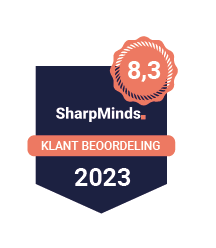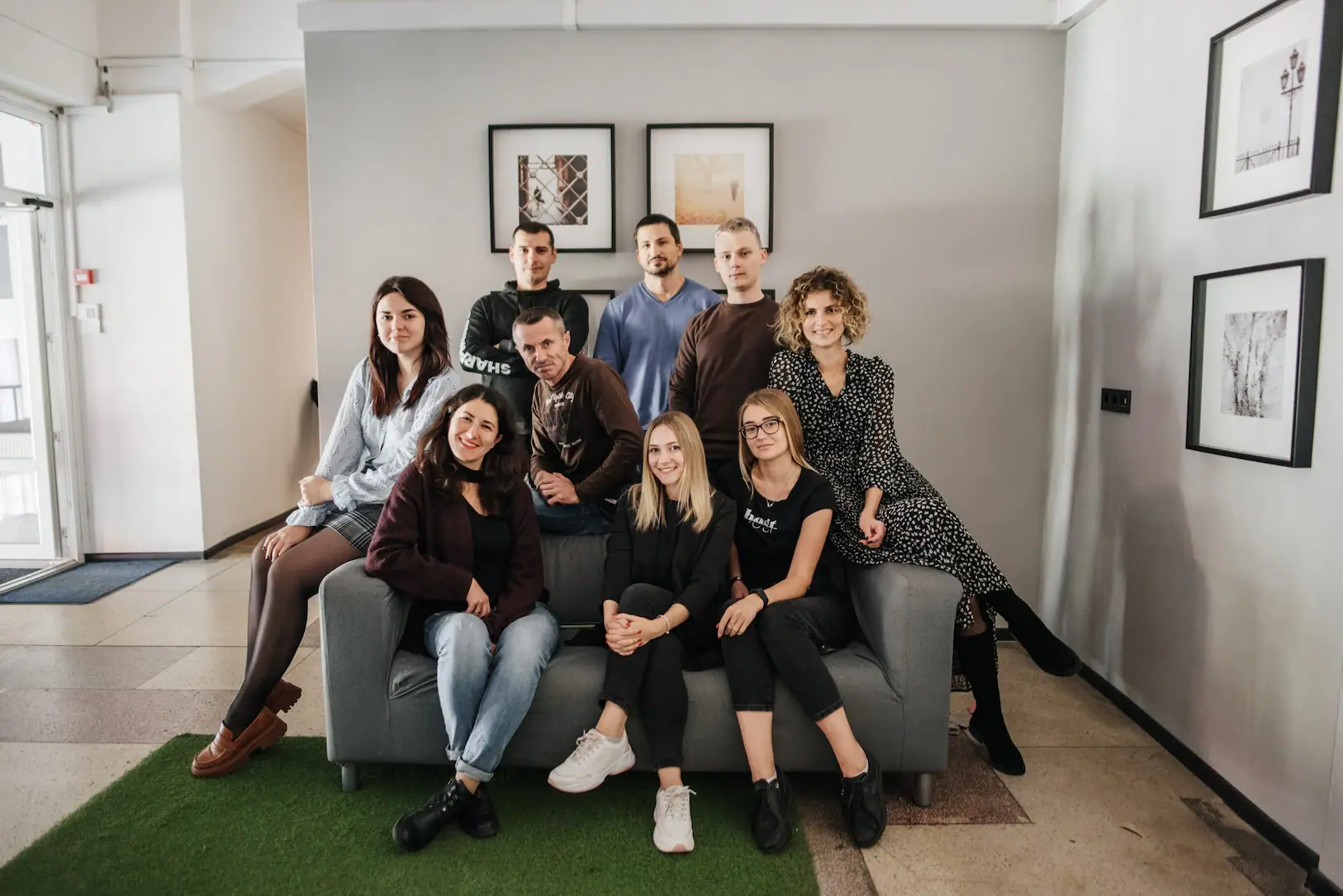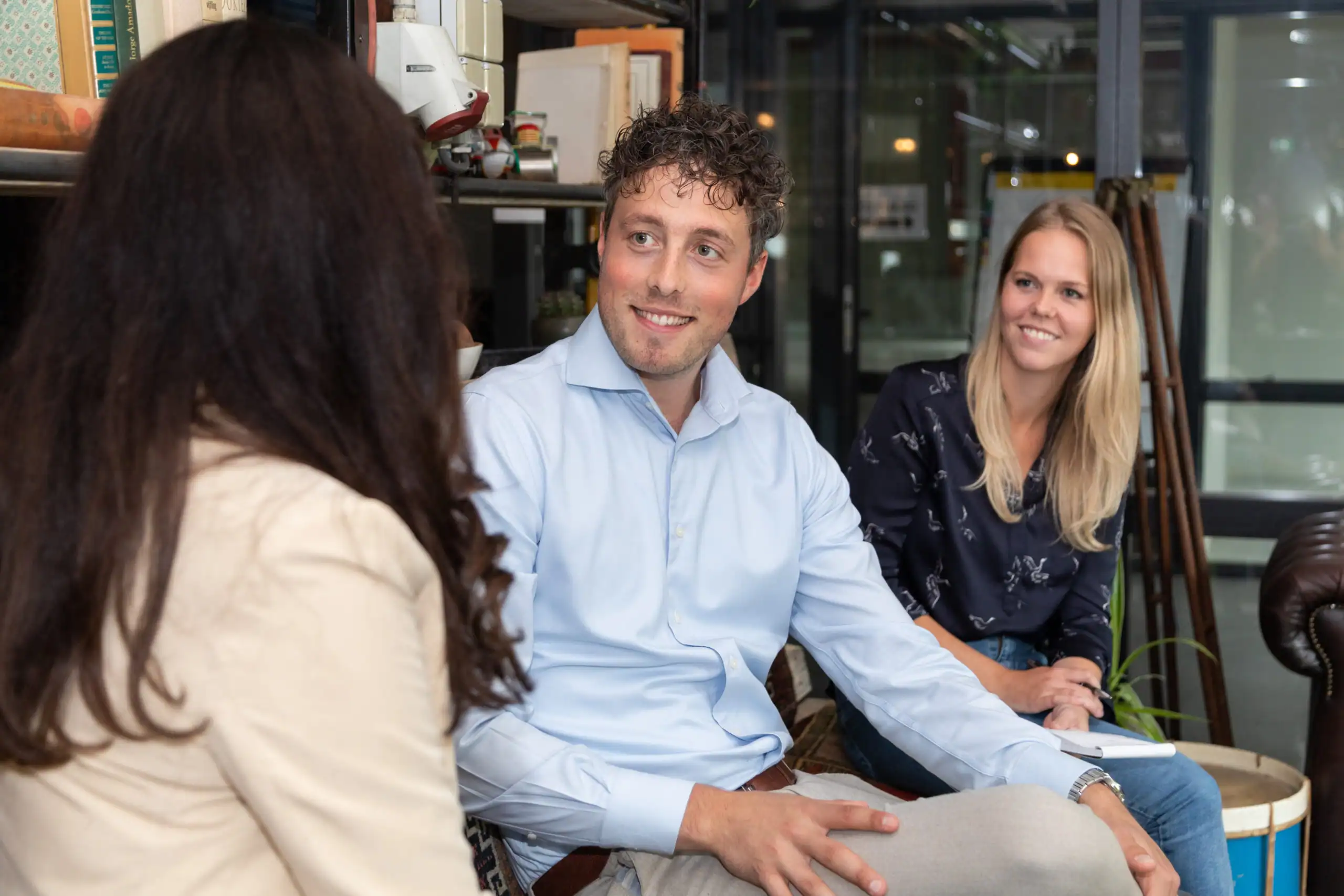
Duik in de wereld van nearshoring en ontdek het potentieel als strategische keuze voor het uitbreiden van jouw softwareontwikkelingsteam. In deze blogpost leiden we jou...

Bij SharpMinds bewijzen we elke dag dat bedrijven hun ambities sneller kunnen realiseren met remote development. Met een groot netwerk, uitstekend selectieproces en luisterend oor bieden wij volledige recruitment en HR-ontzorging. Binnen no time helpen wij jouw remote developmentteam samen te stellen en op te bouwen. Ontdek onze oplossingen!
Voor het vinden van de juiste talenten voor je remote developmentteam kun je leunen op ons brede netwerk, met vestigingen verspreid over 4 landen en 2 continenten. Alle vestigingen staan in direct contact met elkaar, leveren Engelstalige remote developers en werken volgens dezelfde hoge kwaliteitsstandaarden.






Wanneer je voor ons kiest, kun je er op vertrouwen dat we alleen genoegen nemen met de best mogelijke oplossing voor jouw specifieke eisen en wensen. Wij geloven niet in ‘mensen schuiven’, maar in het vinden van de beste developers voor elk bedrijf en elk project. Alleen zo creëer je de voorwaarden voor een succesvolle samenwerking.

Maak je geen zorgen over ingewikkelde HR-procedures en administratieve rompslomp. Wij nemen alles uit handen, zodat jij je volledig kunt focussen op je project.
Bij SharpMinds hoef je geen concessies te doen. Wij vinden remote developers voor alle leading technologieën en ontwikkeltalen. Of het nu gaat om een junior, medior of seniorprofiel, wij vinden de juiste developers voor jouw specifieke opdracht.

Het remote developmentteam dat jij bij SharpMinds samenstelt werkt dedicated aan jouw project. Dat betekent dat je op elk moment van de dag op hen kan rekenen, en niet bang hoeft te zijn dat ze bezet zijn door andere opdrachtgevers. Bovendien voelen onze developers als een extensie van je huidige developmentteam. Collega’s op afstand waarmee jij direct in contact staat; ver weg maar altijd dichtbij!

Duik in de wereld van nearshoring en ontdek het potentieel als strategische keuze voor het uitbreiden van jouw softwareontwikkelingsteam. In deze blogpost leiden we jou...

Het einde van 2023 is in zicht en daarom gaan wij vooruit kijken naar de tech trends in 2024. In deze post nemen wij jou...

Effectieve communicatie is van cruciaal belang voor het succes van elk project. Als je op afstand werkt, wordt dit nog belangrijker. Communicatie op afstand kan...

Werken met een nearshore outsourcing team betekent dat je culturele diversiteit binnen je bedrijf verkrijgt. Veel bedrijven ervaren culturele diversiteit als uitdagend, hoewel culturele diversiteit...

Wat is het juiste model voor mij? Waar begin je als je de juiste outsourcingleverancier voor je bedrijf of project wilt vinden? Terwijl je verschillende...

De tech-industrie behoort tot de early adopters van outsourcing. Ondanks de voordelen van toegang tot de wereldwijde talent, voel je je misschien een beetje nerveus...
"*" geeft vereiste velden aan